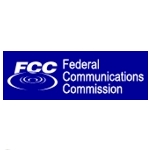 Update: Story updated with results from the 12/21 FCC Open Meeting
Update: Story updated with results from the 12/21 FCC Open Meeting
Two senior FCC officials this afternoon told reporters that the latest version of Net Neutrality guidelines has the support of all three Democratic FCC commissioners. Republican commissioners Meredith Attwell Baker and Robert McDowell are expected to oppose the long debated guidelines.
With the support of Mignon Clyburn, Michael Copps, and Chairman Julius Genachowski, those guidelines would have sufficient support to be adopted at tomorrow’s FCC meeting. According to the FCC officials, the guidelines contain three high-level rules.
- One, they said, is “robust transparency”—a requirement for fixed and mobile operators to disclose information about network management policies to consumers, content providers and device manufacturers.
- Traffic blocking also will be prohibited, the officials said, adding that the requirement will take different forms for mobile and landline networks. On the landline side, one of the officials said, the guidelines will prohibit “blocking of lawful content, services or devices.” On the mobile side, the guidelines will “prohibit blocking of access to websites or applications that compete with the broadband provider’s voice or video telephony, subject to reasonable network management,” the official said.
- The third requirement will prevent “unreasonable traffic discrimination” and is the one that will likely draw the most opposition from service providers. “Paid prioritization is a practice that would get evaluated under the ‘no unreasonable discrimination’ standard,” one of the officials said. “Under that standard, we think it’s unlikely to be [permitted]. . . . The order explains our reasons for concern about paid-for prioritization. The possibility that it might some day be a service that was appropriate under that standard is left open but it’s a very high bar.”
The FCC officials also said they do not expect the Net Neutrality guidelines to be available tomorrow because several days will be required for dissenters—presumably the two Republican commissioners—to pen their concerns and for supporters to respond to the dissenters’ comments. The officials added, however, that some excerpts of the guidelines as well as the major rules will be released tomorrow.
Update: As predicted by two senior FCC officials, who briefed reporters late yesterday, the FCC today adopted Net Neutrality guidelines containing three high-level rules aimed at ensuring transparency, preventing blocking and prohibiting unreasonable discrimination. Also as predicted, the guidelines passed by a three-to-two vote, with the three Democratic commissioners, including FCC Chairman Julius Genachowski supporting the guidelines and the two Republican commissioners dissenting.
Genachowski also reiterated the idea that the guidelines are intended to prevent service providers from offering paid-for prioritization under the ban on unreasonable discrimination. “We are making clear that we are not approving so-called ‘pay for priority’ arrangement involving fast lanes for some companies but not others,” Genachowski said at the FCC meeting today.
Republican Commissioners Robert McDowell and Meredith Atwell Baker complained that they were not given the final draft of the new guidelines, which they said included extensive modifications, until late last night. Baker said that was “inexcusable,” particularly considering Genachowski’s emphasis on transparency.
As the FCC officials predicted, the general public still has not seen the guidelines, which likely will not be available in their final form for a few days—although a high-level summary is expected to be available at www.fcc.gov later today.


